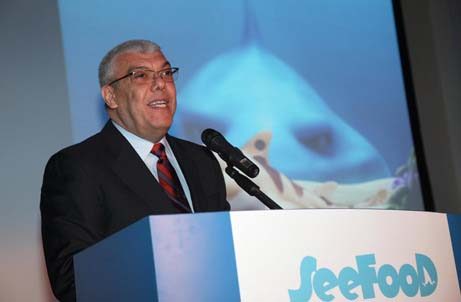
With reporting from Riham Sheble
It will be at least another five months before three former Al Jazeera Children’s Channel employees see progress on the court case holding them in Qatar, after a judge this week postponed all hearings until November.
By then, it will have been more than two years since former JCC manager Mahmoud Bouneb, his wife, JCC’s former director of programming Malika Alouane, and former cost controlling manager Haitham Qudaih were sacked from the channel and prohibited from leaving the country.
The three were among some 30 executives to have suddenly been dismissed by JCC in September 2011. They only officially faced charges in a Doha court last month, and have expressed devastation at the latest delay and their ongoing travel bans.
Bouneb, a 58-year-old Canadian-Tunisian, told Doha News this week:
“My mother is 81 years old. I haven’t seen her in two years and I cannot face her on Skype because I cannot bear the fact that she thinks that I abandoned her. This is the worst feeling ever, not being able to explain to her what I am going through.”
JCC, which reaches some 50 million households across the Middle East, is currently funded by Qatar Foundation. However, the Al Jazeera Media Network is reportedly in the process of acquiring it from QF.
JCC has not publicly commented on this case, and it is unclear whether a management change would affect the hearings.
Charges
Accusations against Bouneb, Alouane and Qudaih include abusing company expense accounts, financially harming JCC and embezzling company funds, among others.
Last year, two audits – one conducted by the Qatar National Audit Bureau and another by Ernst & Young – cleared the trio of financial wrongdoing. That the case against them persists has been criticized by Human Rights Watch, which said the issue is indicative of a larger problem with Qatar’s kafala (sponsorship) system.
For the last five months, Judge Abdulla al-Emadi, the same judge who presided over the Villaggio fire trial, heard the trio’s case as one among many on his daily docket.
But last week, after the second witness in the trial was unable to finish his testimony due to a lengthy cross-examination from JCC’s lawyer, the judge canceled the next scheduled hearing, which was supposed to be on Tuesday, June 25.
He then implied the case would thereafter be held in its own courtroom when it resumed on Nov. 5.
Languishing
Previously, the court has denied requests by the former JCC employees to lift their travel bans, pending the outcome of the trial. Now, the trio said they will renew their attempts to be granted permission to temporarily leave the country, which they say have been trapped in for 21 months.
For Alouane, a 46-year-old Moroccan, told Doha News:
“After seven years of serving a corporation that bagged more than 50 awards because of our dedicated work, for us to be humiliated in such a manner, to be denied the basic right to travel, it’s disgraceful.
Thanks to this travel ban, I am not able to attend to the morbid threat of breast cancer which doctors speculate I might be at the risk of. Now I know who to hold responsible for all this emotional and material damage.”
The delay in the case has also compounded financial troubles for the three expats, who cannot find new work in Qatar without a no-objection certificate from their former employer, which JCC will not grant.
Qudaih, a 36-year-old Palestinian father of three who also supports his parents, called the case “a personal war on us and our livelihood.” He added:
“My main concern now is how to provide for my family. The past months I could barely get by. Now with Ramadan and Eid approaching, I don’t know how I will make things work. I don’t know how I’ll be able to pay the rent, let alone the new installments of school fees. By the looks of it, I might not afford sending my children to school next term.
We are being denied the right to travel and work. I cannot change my sponsor to be able to work elsewhere and I am in desperate need of a job to support my family.”
Meanwhile, the trio has also filed labor cases against JCC so that they can receive their end-of-service payments. But a decision regarding those payments also appears to be on hold until the criminal trial is over.
Bouneb said:
“In a state of law, like Qatar, is it normal to leave people more than two years without resources, income, health insurance, work and freedom of mobility?
It’s improper to let decent people who have served Qatar for years with absolute loyalty to be exposed to such aggression. There is an orchestrated attack on our integrity, honor, competency, reputation, legacy and achievements.”
Thoughts?
Credit: Photo courtesy of Mahmoud Bouneb
Note: This article previously incorrectly stated that the first witness did not finish his testimony during last week’s hearing. It was corrected to reflect that it was the second witness.
